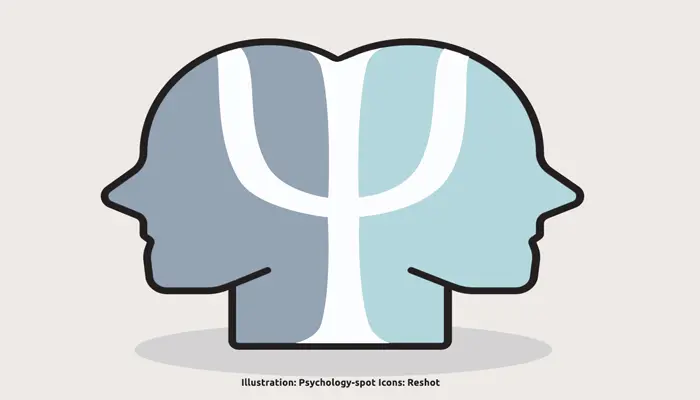
In a society of opinionists, facts shine by their absence. Everyone thinks, few know. Everyone infers, few know the data. To prevent psychologists and psychiatrists from falling into this widespread trap that Umberto Eco described as “The invasion of idiots”, in 1973 the American Psychiatric Association applied what is known as the Goldwater Rule.
What is the Goldwater rule?
The Goldwater Rule refers to an ethics statement that restricts psychiatrists and psychologists from speculating about the mental state of public figures, especially if those figures are in the spotlight, whether on the campaign trail, in the midst of of a war, holding public office or simply because of a scandal.
That rule prohibits psychiatrists from professionally diagnosing an individual they have not personally evaluated. The APA Ethics Committee even expanded that rule beyond diagnosis to cover virtually all psychiatric opinions in 2017, amid public discussion about the mental health of President Donald J. Trump. Of course, Goldwater’s rule has also been validated by the American Psychological Association.
The Goldwater case: The traps and information manipulation that gave rise to the rule
It all started in 1964, when Arizona Senator Barry Goldwater ran for the Republican Party for President of the United States, challenging Democratic President Lyndon B. Johnson.
From the beginning of the campaign, Goldwater refused to moderate his views because he did not have great personal aspirations, but rather assumed the role of an enemy of the establishment and did not want to change what he thought or the way he expressed it just to satisfy the others.
Johnson took advantage of that “weakness” and turned that election campaign into a kind of referendum on nuclear policy, trying to make Goldwater look crazy since no one would leave the “nuclear button” in the hands of an unbalanced person.
In the midst of the campaign, Fact Magazine decided to send out questionnaires to 12,356 psychiatrists asking them to assess whether or not Goldwater “Was psychologically apt to become President of the United States.” After receiving the responses, they published an article titled: “1,189 psychiatrists say Goldwater is psychologically ineligible to be president.” Although some professionals saw him as a normal person, others perceived him as “paranoid”, “schizophrenic”, “obsessive”, “psychotic” and “narcissistic”.
The published responses filled 41 pages of a special issue called “The Unconscious of a Conservative” and were promoted in full-page advertisements in The New York Times and other newspapers. They included statements such as “I believe Goldwater has the same pathological make-up as Hitler, Castro, Stalin and other well-known schizophrenic leaders” or “I believe Senator Goldwater appeals to the unconscious sadism and hostility of the average human being.”
As a result, Johnson achieved a landslide victory. However, Goldwater later sued the magazine for defamation and the payment of damages forced it to close its doors forever. What the magazine omitted was that, of the large number of psychiatrists consulted, only 19% responded and most of the responses were not signed. Among those responses, 1,189 stated that he was ineligible, 657 said yes, and 571 noted that they did not have enough data to give an opinion.
The American Psychiatric Association took action on the matter and strongly condemned what happened. In 1973, the APA created the “Goldwater Rule” in section 7.3 of the Principles of Medical Ethics that applies to public figures and states that “It is unethical for a psychiatrist to offer a professional opinion unless he or she has conducted an examination and the due authorization for such declaration has been granted”.
In 2017, following the controversy that arose over the mental stability of the then president of the United States, Donald J. Trump, the APA ratified this rule, adding that psychiatrists and psychologists should only share their experience on psychiatric issues with the public in general and not about specific public figures.
In addition, it warned that the “duty to warn” that is usually associated with this profession applies only to the knowledge of a risk to others in the course of treatment, so that duty does not apply when there is no a doctor-patient relationship.
Knowing what goes on in a person’s mind is difficult, even for psychologists and psychiatrists
In a general sense, this ethical rule is intended to prevent mental health professionals from making unverifiable – and often contradictory – inferences about the psychological balance of public figures. What is intended to be avoided, among other things, is that these inferences may have a great influence on public opinion, despite not having been validated with the usual psychological techniques, such as interviews, questionnaires or tests.
In reality, each person is a universe in such a way that, although many psychiatrists and psychologists may have a professional opinion about the traits of certain public figures or even intuit possible disorders, it is difficult to make conclusive statements without knowing the person, their history of life and, above all, their experiences.
Intuiting is not the same as knowing. Inferring is not the same as stating. An opinion is not a fact, even if it comes from a psychiatrist or a psychologist.
Assuming someone is emotionally hurt by uncaring parents is not the same as realizing it. Imagining that someone is arrogant or narcissistic because of his or her public speeches is not the same as verifying it in the direct relationship. Concluding based on isolated decisions, often made under pressure, that someone is impulsive or calculating is not the same as confirming it throughout their lives.
This means that most of the “psychological profiles” outlined in the press and magazines about public figures are really just generalizations – which often come from journalists themselves and can be both true and false. Most psychiatrists and psychologists know that the human mind is complex and it is very difficult to make strong statements without having been in contact with that person and knowing the emotional impact that their different life experiences have had.
Therefore, it is better for everyone to form their own opinion of it and not be influenced by judgments that are often more aimed at denigrating and attacking public figures or praising and glorifying them without foundation. Within each person there are lights and shadows. The attempt to sanctify some and demonize others only responds to our need to simplify human complexity in order to feel a little more secure in a world that seems too uncertain to us.
Sources:
(2017) APA’s Goldwater Rule Remains a Guiding Principle for Physician Members. In: APA.
(2016) Goldwater Rule’s Origins Based on Long-Ago Controversy. In: APA.



